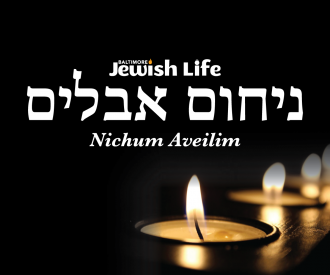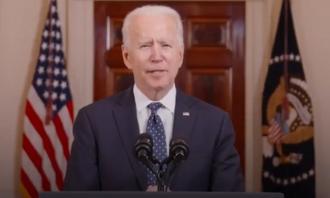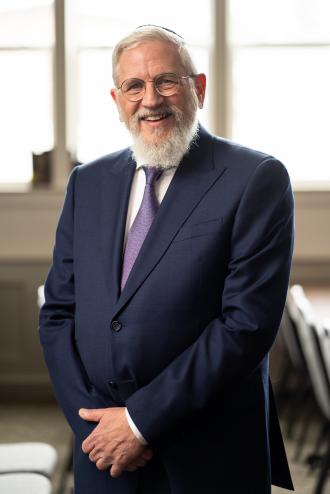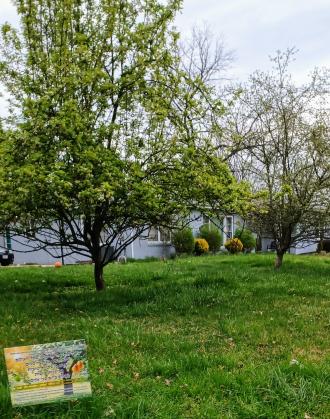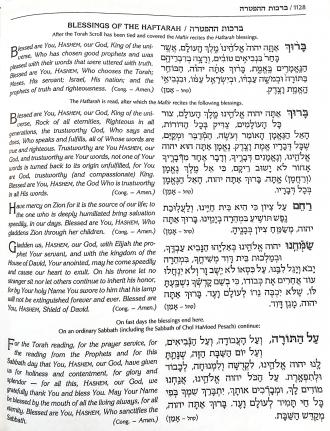During these ‘Ten Days of Teshuva’ we are tasked with taking advantage of G-d’s proximity by cleaning up our act and getting closer to Him.
Although this has broader implications in that it encompasses all our misdeeds, nevertheless in practical terms there seems to be three areas of improvement specifically mentioned.
The Rambam initiates his directive with the call to ‘increasing charity’, then going on to encourage doing more good deeds and engaging in mitzvos in general.
The Shulchan Aruch devotes an independent section to the need prior to Yom Kippur to rectify the wrongs we have committed towards one another, appeasing, and asking forgiveness.
There is another separate section summoning us to refrain from eating bread products that were baked by a non-Jew and during these special days to consume Pas Yisrael exclusively.
Although initially the Sages prohibited non-Jewish bread within the general restriction from drinking their wine and eating their cooked products, they later permitted it due to the difficulty in accessing Jewish owned ovens solely. Even though it is now permitted throughout the rest of the year, during these auspicious days one should go the extra mile and seek out Pas Yisrael.
What about the myriad of other laws that we are deficient in? Why do we focus only on these three specific items?
The brilliant gaon, Rav Yehonoson Eibshitz, calculates that the entire episode of Bilaam’s attempt to curse the Jews only to be foiled time and again, transpired during the Tens Days of Repentance.
Balak’s initial appeal to Bilaam, לכה נא — Please come, ארה לי — and curse for me, took place on the first day of Rosh Hashanah. The word ארה when parsed becomes א רה: א — the first day, רה — of ראש השנה — Rosh Hashanah!
Bilaam’s final unsuccessful attempt took place on the last day of these ten days, Yom Kippur, with his being compelled to bless them in defeat as he blurts out How goodly are your tents, O Jacob, alluding to that day when we all find ourselves in the tents of Jacob, wholly devoted to G-d, warding off the prosecutorial efforts of Bilaam.
There is an obscure Midrash quoted that has Avraham appealing to G-d after the Akeidah, that in the merit of his having passed all his ‘Ten Tests’, his progeny should be blessed with the Ten days of Repentance.
These are three traits that differentiate the disciples of Avraham from those of Bilaam.
The ‘good eye’, ‘humble spirit’, and ‘meek soul’ of Avraham’s students, are in stark contrast with the ‘evil eye’, ‘arrogant spirit’, and ‘greedy soul’ of Bilaam’s underlings.
We engage in acts of charitable ‘kindness’ exhibiting our generous ‘good eye’ towards others and their needs — ‘increasing charity’.
We quash our ego, with a renewed ‘humble spirit’, before others we have arrogantly offended — ‘appeasing’ those we have hurt.
We display our ‘meek [animal] soul’, in restricting our animalistic instincts from lunging after that which we ‘desire’ but do not necessarily ‘need’, although permitted — Jewish bread, mastering control over our base instincts.
In these great days of opportunity to cleave to our Source, breaking free from the material forces of gravity that seek to detach us from our truly noble souls, we transform to who we really are once again, shaking off the shackles of earthliness.
The quintessential ‘Rosh HaYeshiva’, Rav Hutner, explains that the judgment we undergo on Rosh Hashana determines the sum of who we are and where we are heading. It is for that reason the Rambam says its not enough to simply add credits during the Ten days of Repentance, but one must do teshuva, for only a sincere desire to change the course of our life that reflects on our being transformed from the individual who stood before Hashem on Rosh Hashana, is deserving of reconsideration on Yom Kippur.
In his words: Teshuva is not simply about becoming ‘better’, it is about becoming ‘different’.
During these days the gauntlet is thrown down.
Who do we belong to, the lackeys of Bilaam or the adherents of the legacy of Avraham?
The Torah describes Bilaam setting out on his mission as וילך שפי — He went alone.
Bilaam was totally self-absorbed, incapable of sensitivity to others and their needs, viewing them only as opportunities for self-gratification, the antithesis of Avraham Avinu the paradigm of חסד — kindness towards others.
Rabbeinu Bachya reveals that the word שפי is an acronym for the description of the Jewish people as a שה פזורה ישראל — a scattered sheep is Israel. The boastful Bilaam sought to expose a raw nerve by claiming that Avraham’s ‘flock’ was not quite as united in their devotion to one another, as evidenced in the prophet’s own words depicting them as a disparate and fragmented people, unable to overcome their personal differences.
The Chasam Sofer suggests that שפי serves as an acronym for שמן פתן יינן — oil, bread,wine, an allusion to the original decree to disassociate from interacting socially with the other nations through indulging in their fine food lest we absorb their cultural affinities, and be drawn away from our highest ideals as a nation possessing supernal self-control.
We counter his defaming us by engaging during these days in kindness, appeasement, freedom from our base desires, the hallmarks of our living by the inspiration of our forefathers and foremothers, in the image of G-d.
Moshe Rabbeinu on the last day of his life is portrayed as וילך משה — And Moshe went. But the Torah doesn’t tell us where he went, simply that ‘he went’. Some say he went to the people to show his honor for them, or perhaps console and encourage them after they heard of his impending departure. The Targum Yehonoson says he went to the Study Hall, the Bais Midrash, to delve in Torah. Others simply state that this word implies he went with dispatch and diligence. However we understand where it is he went we are left perplexed as to why the Torah chose to keep it a secret and not spell it out?
The Baal HaTurim directs us to the verse directly prior to this one whhich is the concluding verse of a series of verses that speak about our need to ‘choose life’ by following the ways of the Torah so that we may merit to ‘dwell upon the land that G-d swore to your forefathers, to Avraham, to Yitzchok, and to Yaakov, to give them.’
He says that juxtaposition of these verses alludes to Moshe having ‘gone’ to the forefathers to report of his success in having brought their children to the Promised Land.
Our history as a people begins with Avraham’s response to G-d’s directive, ‘Go...’, and the Torah concludes with fulfillment of that mission, embodied within the persona of Moshe and his ‘going’.
Avraham is suddenly thrust into the unknown simply being told to ‘go’. He is told by G-d to ‘walk the length and breadth of the land’, prophetically seeing the tortuous trials and tribulations of his progeny throughout history, infusing his children with a faith that will assist them through the great abyss ahead.
Moshe is told ‘it is over’, his mission is accomplished. He no longer possessed ‘the fountains of wisdom’ that flowed freely from within him. No future, nor mission, Moshe nevertheless steps forward purposefully with zeal and joy, extracting from every morsel of life an opportunity to encourage others, to delve in Torah study despite his diminished perception, or to simply exude faith in G-d’s word before his beloved nation.
It really doesn’t make a difference to us where he went. The message he left is that no matter what we face we much always be ‘going’ and never remain static.
Perhaps that is the profundity in his ‘going to the forefathers’. In his never allowing himself to lapse in moving forward, despite disappointment and failure, he remained a living testament to the inspired continuation of the legacy of Avraham who took that very ‘first step for mankind.’
Bilaam goes it alone in his endless quest for self-gratification, chasing after the elusive pot of gold at the end of the rainbow he will never find.
We, in the legacy of our illustrious ancestors, keep on going despite reaching our objectives, revealing new levels of closeness to Hashem through the hurdles we overcome.
In the quest to ‘return’ the opportunities are endless. We must simply keep on going, creating a world of more ‘kindness’, greater deepening of our relationships with one another, and finally freeing ourselves from the gravitational pull of material pleasures, and discovering the greatest of all joys — שובה אל ד' — Return, O Israel, to Hashem, your G-d...!
גמר חתימה טובה,
באהבה,
צבי יהודה טייכמאן




